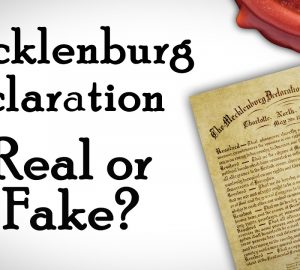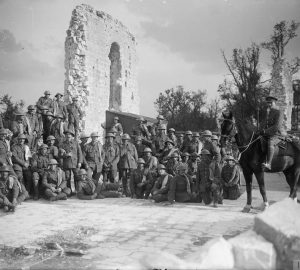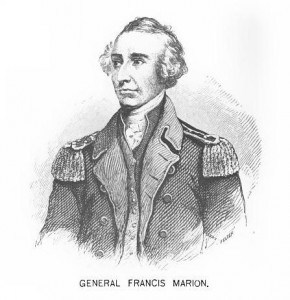
It was a disgusting scene. What had begun as a sober and important council of war to discuss the affairs of a besieged American city had become a drunken party. Officers were behaving like drunken privates. Lucid statements of military defense had become boisterous shouts of confidence, confidence inspired by the illusions of liquor rather than by concrete plans of sound strategy.
The successful defense of Charleston, South Carolina, was vital to the Patriot cause. This proud seacoast city, having already resisted several attacks by the British navy, was now assaulted by a combined land and naval force that was quickly cutting off all hope of escape or of help from friendly armies.
The American officers charged with Charleston’s defense had met to discuss affairs even as the British tightened their hold on the harbor. The tavern keeper, in whose tavern the meeting was held, was a selfish man who desired to profit from his customers’ fondness for drink. He kept the liquid flowing, and the conversation became more and more boisterous as the night crept into the wee hours of the morning.
In the middle of this wild hubbub of drunken officers sat a slim, athletic figure of medium height. He was a good officer of French Huguenot descent who had played a leading role in the defense of the city in the past. He was resolved again to do his best or perish in the attempt. But he was becoming disgusted with the conduct of his drunken comrades.
Knowing that meaningful statements were now rare and that any clear remarks he could make would be lost upon the drunken ears of his comrades, he decided to leave the meeting and return to his post of duty. But when he tried to leave the upper room of the tavern, he found it locked. The tavern keeper had locked the officers in the room so they could have their fill of rum and give him a good profit.
Now the only sober man in the place, the Christian officer looked for a way out of his dilemma. He was a very abstemious man who, in the hard days of active field campaigns, often subsisted on sweet potatoes and water. He would not become drunk, and he sought a way out of the room.
There was only one way of escape, a window. He opened the window and looked out. The ground was a long way off, but he was an athletic man, and he thought he could make the jump and get out of the drunken company he was in. Deciding to try, he made the leap. But in falling, his ankle turned the wrong way, and his ankle was broken badly.
To his deep chagrin, he had to be taken out of the city on a litter. He had longed to play his part in the defense of Charleston, but now he would be able to play no role in her defense. He was disappointed, frustrated, and dismayed by the lack of military preparedness among his comrades. But he was advised that he should leave the city and head into the interior of South Carolina to recover from his broken ankle. There was but one safe way out of the city, and on this route he was removed to a place of safety.
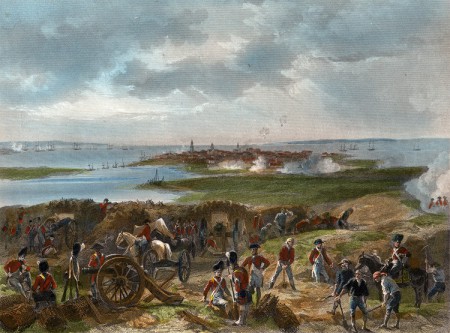
In only a few days, the city was environed by the enemy, and General Benjamin Lincoln surrendered the city of Charleston to the British forces. The vast majority of commissioned officers in the Southern Department had all become prisoners of war. But our hero’s noble resolution not to become drunk had, in the providence of God, preserved him at a crucial period of South Carolina history.
Now one of only a handful of officers in the State of South Carolina who held a commission from the Continental Congress, our hero began to plot how to field a viable force that would oppose the advances of the enemy. After his recovery, he gathered a small band of men that would become famous in the history of South Carolina’s struggle for liberty.
Today, every South Carolinian knows the name, or at least should know the name, of General Francis Marion, the “Swamp Fox” as he was called by the British. But few know the story of how his resolution not to get drunk preserved him from becoming a prisoner of war in the fall of Charleston.
For three long and grueling years, Francis Marion harassed the British forces in South Carolina. With a fluctuating force of mounted men and boys, General Marion succeeded in baffling the most determined efforts of the British to destroy his command. Emerging from the dismal swamps, he would strike the British column, disperse pickets, raid supplies, cut communications, and capture isolated posts.
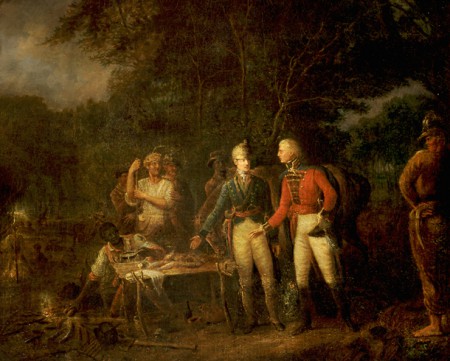
“Light Horse Harry” Lee, the father of Robert E. Lee and comrade in arms of General Marion, said of his friend,
Fertile in stratagem, he struck unperceived, and retiring to those hidden retreats selected by himself in the morasses of the Pee Dee and Black rivers, he placed his corps, not only out of reach of his foe, but often out of the discovery of his friends—never elated by prosperity, nor depressed by adversity, he preserved an equanimity which won the admiration of his friends and exalted the respect of his enemies.
Finally, a real army was sent south to his assistance, and the British were slowly and gradually drawn out of the state by such able generals as Nathanael Greene and Daniel Morgan. Francis Marion continued to render assistance, raiding British posts in concert with the efforts of Greene and Morgan.
The supreme American commander in the South, General Nathanael Green, gave this glowing tribute to the labors of Francis Marion, the “Swamp Fox,” in a personal letter,
Certain it is, no man has a better claim to the public thanks than you. History affords no instance wherein an officer has kept possession of a country under so many disadvantages as you have. Surrounded on every side with a superior force, hunted from every quarter with veteran troops, you have found means to elude their attempts, and to keep alive the expiring hopes of an oppressed militia, when all succor seemed to be cut off. To fight the enemy bravely with the prospect of victory is nothing, but to fight with intrepidity under the constant impression of defeat, and to inspire irregular troops to do it, is a talent peculiar to yourself.
After the war, Francis Marion went on to a useful life of agriculture and service in the South Carolina Senate. He married a Godly lady of Huguenot ancestry like himself, but they never had children. Marion had a bright Christian testimony and once gave this testimony of the power of the Gospel, “The religion of Jesus Christ is the only sure and controlling power over sin.” Marion died peacefully in February of 1795 beloved by the grateful people whom he had served so well. His tombstone reads:
History will record his worth,
and rising generations embalm his memory,
as one of the most distinguished patriots and heroes
of the American Revolution;
which elevated his native country
to honor and Independence,
and secured to her the blessings of liberty and peace.
This tribute of veneration and gratitude
is erected in commemoration
of the noble and disinterested virtues of the citizen,
and the gallant exploits of the soldier,
who lived without fear, and died without reproach.
The bold deeds of the “Swamp Fox” have stirred the hearts of each generation. Young Thomas Jackson held Marion as his foremost boyhood hero, and the subsequent campaigns of Jackson, Stuart, and Mosby reflect Marion’s exploits in South Carolina.
But were it not for his resolute decision to jump from a window to avoid drunkenness, Marion would have been captured along with the rest of the officers defending Charleston and would never have been able to liberate his native state from the clutches of the enemy. A man’s resolution to do right may seem insignificant, but the God of providence can do great things with such resolute and obedient men.

Selected Bibliography
The American Revolution in the South by “Light Horse Harry” Lee
The Life of General Francis Marion by M. L. Weems
The Life of Francis Marion by William Gilmore Simms
The Swamp Fox by Robert D. Bass



